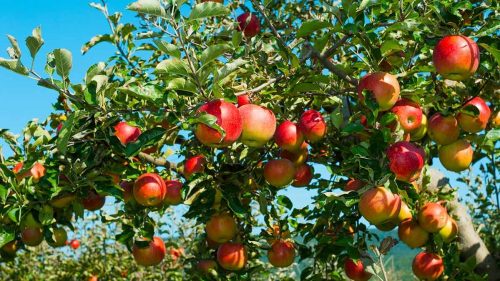Potassium humate improves the quality of agricultural productspromotes the activity of sugar invertase, starch phosphorylase and some enzymes involved in protein and fat synthesis, and increases the synthesis and accumulation of sugar, starch, protein, fat, nucleic acid, vitamins, etc., and promotes transferase.
Regulate enzymatic reactions and enhance plant life activities
Enzymes are biocatalysts for plant life activities, and the size of the enzyme is expressed by the activity of the enzyme. Potassium humate can stimulate the activity of polysaccharide enzyme, so that the cell wall of the young cell wall is hydrolyzed, the cell wall is softened, and the cells are easy to elongate and divide, and grow longitudinally and laterally, thus having a significant effect on promoting the growth of young tissue cells.
The role of the growth point is particularly significant. Potassium humate contains a large amount of carboxyl groups, which can inhibit the activity of auxin oxidase, reduce the damage of auxin and increase the content, which is beneficial to the growth of roots and stems, making the roots of crops fast, secondary roots, roots increased, and roots are elongated. The crops absorb water and increase nutrient capacity; increase cell membrane permeability and promote nutrient absorption.
Potassium humate promotes the activity of sugar invertase, starch phosphorylase and some enzymes involved in protein and fat synthesis, and increases the synthesis and accumulation of sugar, starch, protein, fat, nucleic acid, vitamins, etc., and promotes transferase.
The activity of accelerating the metabolism of various metabolites from stems or roots to fruits and grains has a direct effect on improving and improving the yield and quality of crops; it can also stimulate the activity of polysaccharide enzymes and convert polysaccharides into soluble monosaccharides, thereby improving The sweetness of the fruit;
Increase the ratio of total sugar to nicotine and potassium to chlorine in tobacco leaves, improve the quality of tobacco leaves; increase the total sugar content and vitamin C content in fruits such as watermelon and cantaloupe.
Improve chlorophyll content and promote photosynthesis
Potassium humate can promote the absorption and operation of trace elements in plants, so that the content of chlorophyll in leaves is significantly increased, and the activity of proteolytic enzymes can be inhibited, and the decomposition of chlorophyll is slowed down.
Potassium humate can increase the activity of antioxidant enzymes. The antioxidant enzyme system can remove excess reactive oxygen species in cells and reduce the damage of chlorophyll by reactive oxygen species. These are beneficial to maintain and improve chlorophyll content, promote photosynthesis, accelerate sugar accumulation, promote the synthesis of nucleic acids, chlorophyll, vitamins, antibiotics, and improve plant quality and health.
Enhance breathing
Because the potassium humate molecule is small, it is easy to enter plant cells. As a donor of polyphenols or a receptor for hydrogen, it directly affects the redox process of plants, promotes the synthesis of adenosine triphosphate (ATP), and acts as a respiratory catalyst. Effect;
potassium humate can also enhance the activity of respiratory enzymes, especially the activity of terminal oxidase, thereby enhancing respiration. Respiratory effects are strong, thereby promoting root absorption and material synthesis.
4.Promote the absorption and transportation of mineral elements
Many trace mineral elements such as Fe, Cu, Zn, Mn, B, Mo, etc. are components of enzymes or coenzymes involved in plant metabolic activities, or have important effects on the activity of various enzymes and plant stress resistance, and some are cellular structural substances. The composition.
The active groups of potassium humate (including carboxyl groups, hydroxyl groups, and certain groups containing P, O, N, and S) are generally electron donors, and are easily associated with many electron acceptors (multivalent metal ions, organic groups). Or ionic) constitutes a coordination compound, referred to as a complex or chelate. For example, potassium humate-Zn, potassium humate-Mn, potassium humate-Fe, etc., are mostly complex (chelating) substances.
In addition, potassium humate also has ion exchange properties, and active hydrogen ions (H+) on carboxyl and phenolic hydroxyl groups are easily replaced by monovalent cations (K+, Na+, Li+, NH4+) and some divalent metal ions (Ca2+, Mg2+, Fe2+, etc. Replacement to form humic acid potassium salts and the like. This effect of potassium humate increases the absorption of many trace elements by crops.

